Search Results
Showing results 1681 to 1700 of 2051
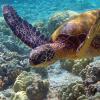
Habitat Adaptation Matchup
Source Institutions
In this activity, learners work in small groups to match various marine animals with their different environments.
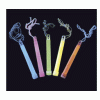
Illuminations on Rates of Reactions
Source Institutions
In this activity, learners investigate the speed of chemical reactions with light sticks. Learners discover that reactions can be sped up or slowed down due to temperature changes.
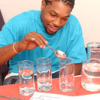
Real Glass Xylophone
Source Institutions
In this activity, learners create a xylophone by filling glasses with different amounts of water and tapping them with a metal spoon.
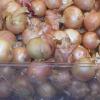
Isolation of DNA from Onion
Source Institutions
This laboratory exercise is designed to show learners how DNA can easily be extracted from onion cells. It includes an optional test for the presence of DNA.
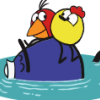
From Here to There
Source Institutions
In this water activity, learners discover ways to move water across the water table.
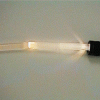
Glue Stick Sunset
Source Institutions
In this activity, learners explore why the sky is blue. Learners model the scattering of light by the atmosphere, which creates the blue sky and red sunset, using a flashlight and clear glue sticks.
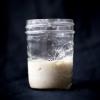
Wild Sourdough
Source Institutions
In this activity, learners explore chemistry and the microbial world by making their own sourdough starter and bread at home using only flour and water.
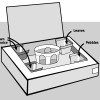
There’s No Place Like Home!
Source Institutions
In this activity, learners make their own bug boxes and test the habitat preference of selected "minibeasts" (bugs).
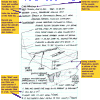
Keeping a Field Journal
Source Institutions
In this activity, learners start their own field journal to better understand the wildlife in their area.
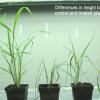
Effect of Environment on Plant Growth
Source Institutions
The purpose of this plant biotechnology activity is to demonstrate the effect of changes in the environment on the growth and fertility of landscape grasses and crop grasses such as wheat and rice.

A Cubic Foot Per Second
Source Institutions
In this activity, learners measure and calculate the amount of cubic feet various containers contain. Next, learners investigate cubic feet per second (cps), by carrying jugs in one second.
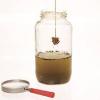
Planaria Fishing
Source Institutions
In this activity, learners capture and observe planaria, which are worms that eat tiny pond critters.
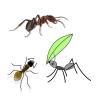
Insect Collection
Source Institutions
Learners use several types of insect sampling and collection equipment to make an insect collection. Learners can collect insects from their schoolyard or yard at home.
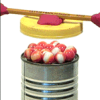
Bearings for Your Whirligig
Source Institutions
Experiment with friction and make bearings for a whirligig! This activity is a nice introduction to friction and bearings and demonstrates why bearings are useful for spinning.
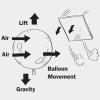
Sky Floater Challenge
Source Institutions
In this design challenge activity, learners make a balloon hover at eye level for five seconds, and then make it move by creating air currents.
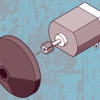
Motorized Car
Source Institutions
In this design challenge activity, learners build a car that uses a battery-operated motor to "drive" at least ten feet.
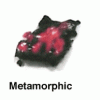
The Crayon Rock Cycle
Source Institutions
In this activity, learners use crayons to draw conclusions about rocks and the rock cycle.
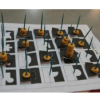
Fruity-Glows: Pictures of Health on a Microarray Canvas
Source Institutions
In this activity (page 12), learners apply the concepts of pixilation and pointillism to the world of biomedical science.
Trees: Buds and Twigs
Source Institutions
In this hands-on nature activity, learners observe the emergence of leaves and flowers. Branches from trees and bushes are collected in the early spring, brought indoors, and placed in water.
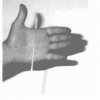
Holding Charge
Source Institutions
In this trick, learners discover how to stick a straw to the palm of their hand, window door, or anywhere using static electricity.
